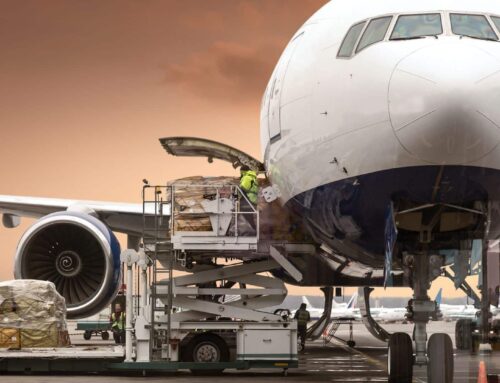The global push for decarbonization has taken a major step forward. On May 13, 2025, the world’s first large-scale e-methanol production facility officially opened in Kassø, Denmark. Operated by European Energy in partnership with Mitsui & Co., this plant is designed to produce 42,000 metric tons of carbon-neutral e-methanol annually.
This isn’t a small pilot project—it’s a turning point in how fuel supply chains, shipping routes, and maritime sustainability strategies will evolve. And for IOG, it’s a clear signal: supply chain innovation now depends as much on environmental intelligence as it does on logistical control.
A Fuel for the Future
e-Methanol, produced using green electricity and biogenic CO₂ captured from industrial processes, offers a scalable, low-emission fuel alternative to fossil-based marine fuels. Maersk, one of the world’s largest container shipping companies, is the plant’s first major customer. The dual-fuel Laura Maersk and its sister vessels are among the first to run on this cleaner alternative, with supply contracts already in motion.
This is not just a shipping milestone. It redefines upstream fuel sourcing, port fueling logistics, and vessel design—key links in the maritime value chain.
Implications for the Broader Supply Chain
- Decarbonization Commitments: Maersk’s 2040 net-zero target echoes a broader shift in customer and investor expectations across logistics and manufacturing.
- Fuel Supply Chain Reconfiguration: New fuel types require new storage, handling, and distribution systems at key ports and bunkering hubs.
- Monitoring Complexity: Stakeholders will need end-to-end tracking not only of cargo, but of emissions data, fuel compliance, and sustainability metrics.
- Operational Risk: The shift to dual-fuel systems and alternative supply chains introduces transitional risks, from availability gaps to system compatibility.
Where IOG Makes the Connection
At IOG, we’re not just tracking goods—we’re tracking the evolving definition of responsible logistics. The introduction of e-methanol and other alternative fuels transforms what supply chain visibility needs to capture.
- Trackable Carbon Metrics: As regulations shift, our solutions help document and verify sustainability milestones across the journey.
- Predictive Monitoring: Environmental monitoring tools help operators adjust routing or fuel usage based on performance, risk, and sustainability thresholds.
- System Integration: Our data ecosystems enable customers to adapt to new maritime infrastructure and fuel handling operations without blind spots.
This Is Just the Beginning
As more carriers adopt e-fuels and more facilities like Kassø come online, the maritime supply chain must evolve—not just technologically, but philosophically. Sustainability is no longer a side consideration—it’s part of the core logic that drives operational decisions.
The organizations that thrive in this environment will be the ones that see this shift not as a burden, but as an opportunity to lead.
Sustainability Starts with Visibility
The road to decarbonized logistics begins long before a ship sets sail. With IOG’s monitoring and traceability tools, your supply chain is equipped for the fuel future—today.








